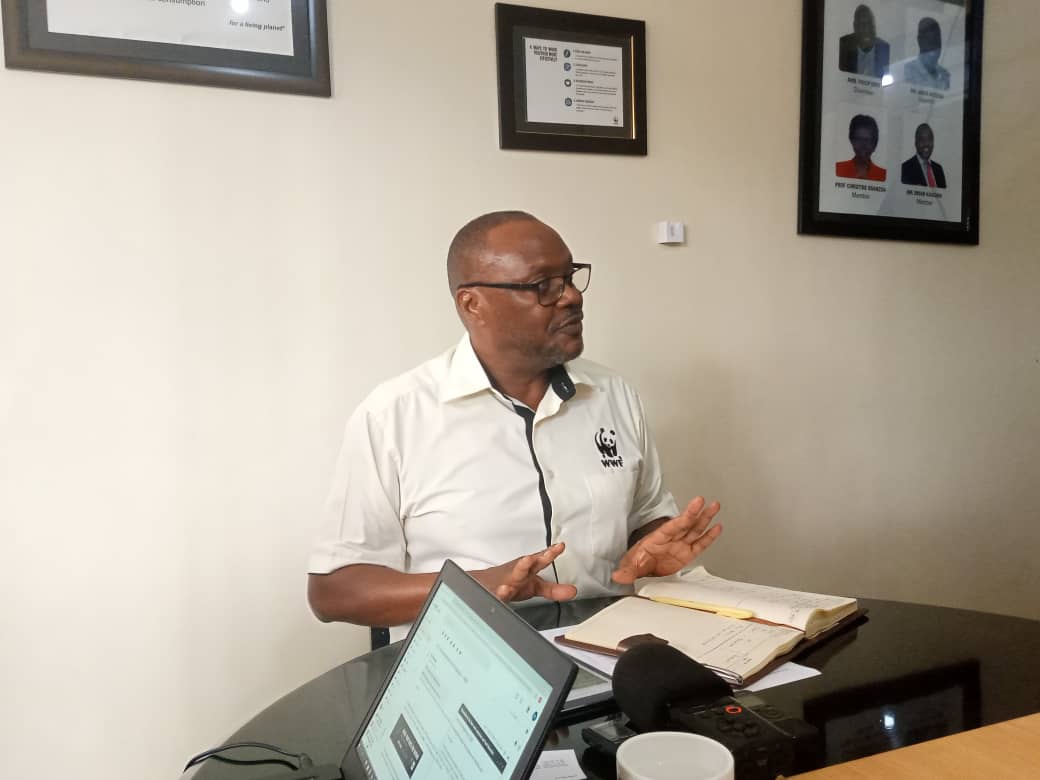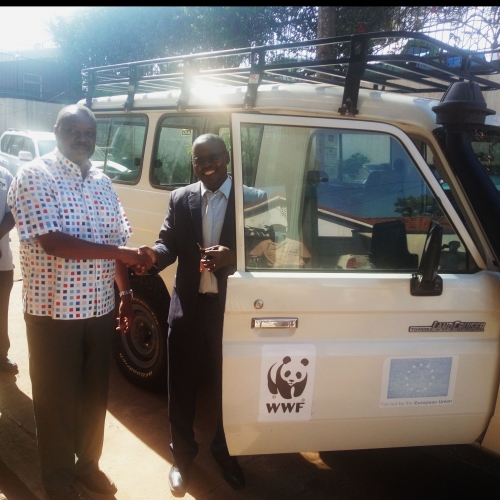
KAMPALA — A host of conservationists including World Wild Fund for Nature (WWF) have voiced condemnation over the killing of a 25-year-old male gorilla, the leader of a group and hugely popular with tourists in the Bwindi Impenetrable National Park.
“As a conservation organization, we condemn it so much, it undermines the work and successes that we have had for many years,” Mr. David Duli the WWF Uganda Country Director told PML Daily via phone on Monday morning.
He added:- “It is time to stand up against it in the strongest terms possible and to make sure that such misplaced minds of individual be corrected”.
Mr. Duli called for equivalent and matching sentencing from the law— asking the judiciary to expeditiously look into this case and conclude it very well in the interest of conservation.
Wildlife authorities in Uganda have arrested four men connected to the brutal killing of the silverback gorilla, named Rafiki.
It was killed after it went missing on June 1. Its body was found the next day.
One of the arrested men, who had been found in possession of wild hog meat, rope and wire snares and spears, “confessed to killing the gorilla in self-defence”, Uganda Wildlife Authority (UWA) said in a statement on Friday.
He claimed the gorilla had charged at him while he and a colleague were hunting.
The UWA statement said the four men had been arrested “after a postmortem report revealed that the Silverback sustained an injury by a sharp device/object that penetrated its left upper part of the abdomen up to the internal organs”.
One of the arrested men had been found in possession of wild hog meat, rope and wire snares and spears, the statement added.
The last incident at the park was in 2011.
Bwindi Impenetrable National Park is one of the protected areas in the world and it has recorded very significant stories on how community can work with Uganda Wildlife Authority and get benefits from Tourism that talks loudly for its self.
Mr. Duli told PML Daily that huge investments have been put at the park including health centres, schools, the tourism facilities that are run by the communities among others for the community to appreciate that Gorillas are an important asset for Tourism not only for them but also internationally.
“It has been an endangered specie that has been removed from that level now. This means that conservation efforts have got meaningful impact. This incident is very sad, and can be condemned to the highest level,” said Mr. Duli adding, “[but] I don’t think its a representation of the majority of the community and people around Bwindi’.
He thinks that this is an offshoot, errant poacher that acted on his own.
“we (WWF) don’t regret the investment that we have put there because the results of the bigger picture is very clear but this is an isolated case,” he added noting that this should not in anyway be used to undermine the conservation investment and success that has been achieved in the Gorilla and conservation area of Bwindi and Mgahinga National Parks.

WWF has heavily invested in conservation. A Vehicle was handed over at WWF – Uganda Country Office by the Country Director David Duli to the UWA Deputy Director for Field Operations Charles Tumwesigye in the presence of Chief Warden of Queen Elizabeth Conservation Area (QECA) and staff from WWF and QECA (PHOTO/File)
Meanwhile, Rafiki was the head of a 17-member gorilla group called Nkuringo.
Bwindi Impenetrable National Park, a UNESCO World Heritage Site near Uganda’s border with the Democratic Republic of the Congo, is a 320-square-kilometre (124-square-mile) patch of dense tropical forest that is home to primates, elephants, antelopes and other wildlife.
Tourists are largely drawn to the park by its estimated 400 mountain gorillas – roughly half the world’s population.
However, visitors have dropped dramatically during the coronavirus pandemic, putting a strain on the local population and conservation efforts that rely on the funds.
Reports of wildlife poaching – which is rampant in Uganda’s game parks, with police frequently announcing seizures of illicitly acquired wildlife products such as ivory, rhino horns and pangolin scales – have also increased amid the reduced activity.





